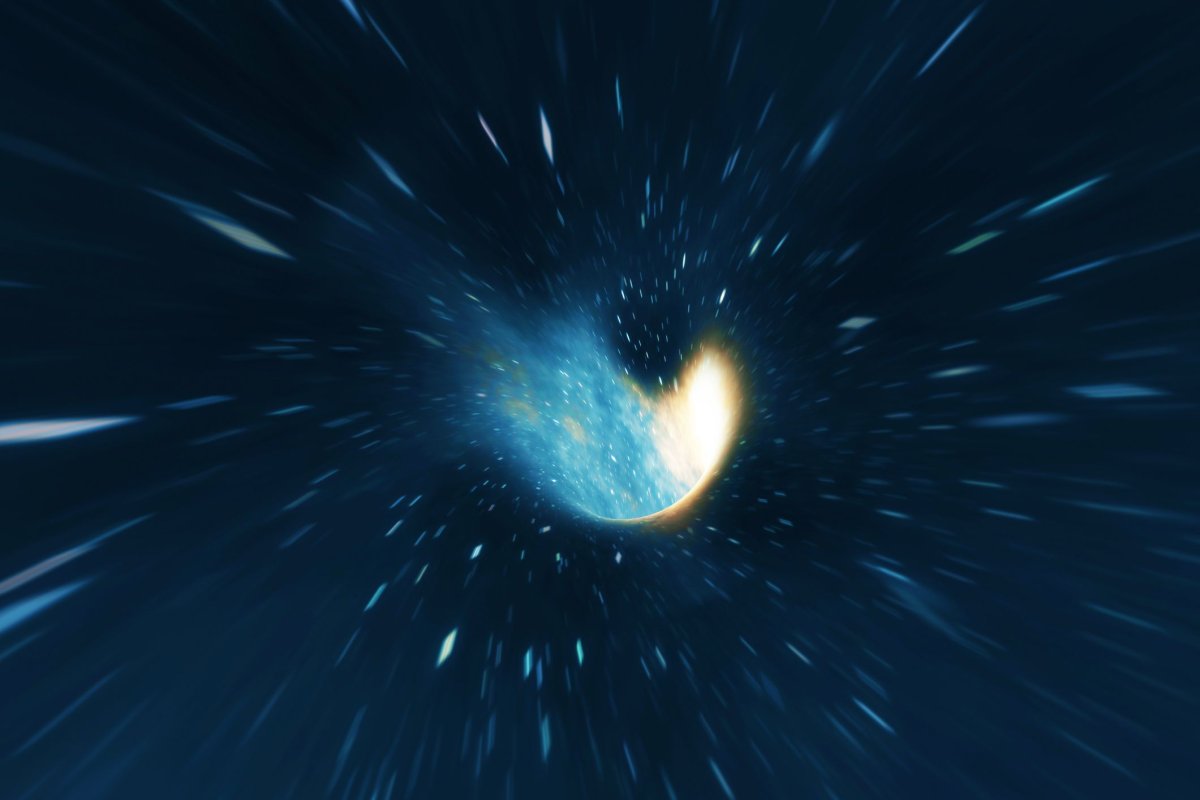One of the most significant scientific developments of recent times has been the five separate observations of the elusive ripples in space-time known as gravitational waves.
It is widely accepted that these waves—which were detected by the LIGO and VIRGO observatories in the U.S. and Italy respectively—originated from the mergers of pairs of black holes (and in one case, a pair of neutron stars). But what if the ripples detected were not produced by black holes at all?
In a study published in the journal Physical Review D, a team of European astrophysicists has proposed an alternative explanation, arguing that the source of the waves could be even more exotic objects, such as wormholes—theoretical passages through space-time that create shortcuts across the universe
While black holes have never been directly observed, their existence has been predicted by theoretical models, indirect observations and the recent gravitational wave detections.
However, black holes present a theoretical problem for physicists because they have an edge, known as the event horizon, beyond which nothing—not even light—can escape. This conflicts with ideas in quantum mechanics, which say that information is always preserved and never lost.
To explain this conundrum, the researchers theorize in their study that the black holes we have indirect evidence for are, in fact, not black holes at all, but so-called exotic compact objects (ECOs), like wormholes, which don't have an event horizon.
"The final part of the gravitational signal detected by these two detectors—what is known as ringdown—corresponds to the last stage of the collision of two black holes, and has the property of completely extinguishing after a short period of time due to the presence of the event horizon," Pablo Bueno, an author of the study from KU Leuven University in Belgium, told Spain's Information and Scientific News Service (SINC).

"However, if there were no horizon, those oscillations would not disappear completely; instead, after a certain time, they would produce a series of 'echoes,' similar to what happens with sound in a well," he added. "Interestingly, if instead of black holes, we had an ECO, the ringdown could be similar, so we need to determine the presence or absence of the echoes to distinguish the two types of objects."
In light of this, the researchers present a model that predicts how scientists could detect the gravitational waves produced by two specific types of ECO—rotating wormholes—using these echoes.
Several groups of scientists have already tried to test for the 'echoes' by analyzing data from LIGO, but so far, the results have been inconclusive. However, if evidence for them is found, it has the potential to revolutionize our understanding of the universe.
"The confirmation of echoes in the LIGO or Virgo signals would be a practically irrefutable proof that astrophysical black holes don't exist," Bueno said. "Time will tell if these echoes exist or not. If the result were positive, it would be one of the greatest discoveries in the history of physics."
Uncommon Knowledge
Newsweek is committed to challenging conventional wisdom and finding connections in the search for common ground.
Newsweek is committed to challenging conventional wisdom and finding connections in the search for common ground.
About the writer
Aristos is a Newsweek science reporter with the London, U.K., bureau. He reports on science and health topics, including; animal, ... Read more
To read how Newsweek uses AI as a newsroom tool, Click here.








